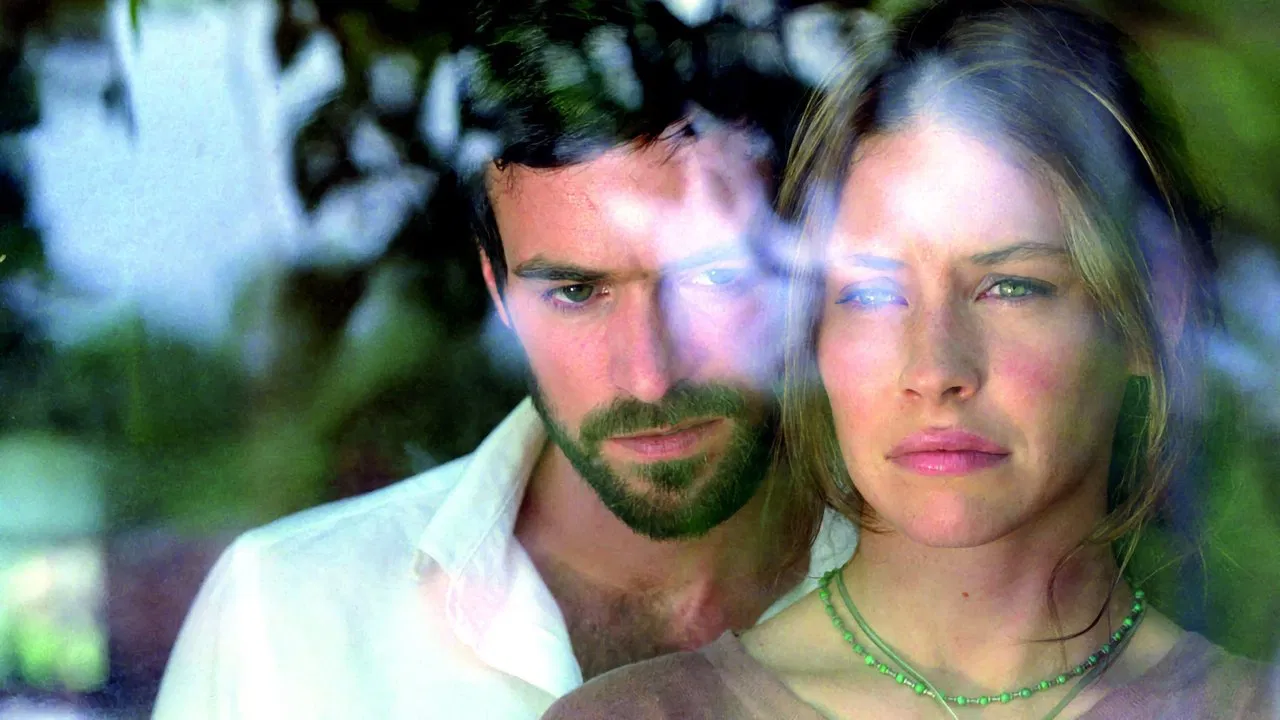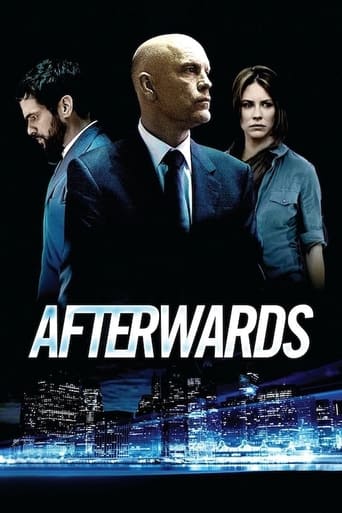

First of all I'm no movie critic or someone pretending to be expert in the cinematic art I'm just a regular Joe who likes a good movie, with that being said I have to admit that this is one of my all time favorite movies. I like pretty much everything in it:I find the plot to be quite unique and fascinating. It kept me in nescience until the very end (and this is something I experience rarely those days)The acting is at its best imo, Evangeline Lilly and John Malkovich are mesmerizing don't get me wrong Romain Duris was great too, maybe an idea lesser :)Atmosphere is just breathtaking - mysterious, kind of noar and very, very real.Soundtrack is nothing short of perfect, I have nothing else to say just WOW.Overall this is one of the few films that makes me shed a tear every time I watch it (me & my girlfriend if I have to be honest) and I do recommend it with all of my heart.P.S. Sorry for my poor English :(
... View Morethroughout the entire movie romain duris sounds like he has throat cancer when speaking (and what's with those shirts & slacks in every scene).john malkovich looks like john malkovich wearing a john malkovich putty mask!the plot just keeps meandering from one location to the next with always the same message. and the deaths of others actually becomes comical because each one is so expected! just pure nonsense considering the 'message' dr kay brings! and the message is something everybody already knows.how i sat through 104 minutes of this often incoherent mess, i do not know. the opening scene of the lake, children at play, then tragic accident is the only truly powerful and irresistible part of the movie.good luck if you choose to watch this piece of mess!
... View Morethis is a well produced movie, with an interesting story. it is developing quite slowly and i like the somewhat 'open' ending.essentially, a movie of appreciation of life, love, forgiveness and letting go. mr.malkovich plays a good part, making up for the somewhat pale performance of the lead actor. this is probably the weakest point of this production - the lack of an outstanding lead. apart from that - great production, i especially liked the smooth camera work.it really needs very little to be a big movie, and while i cannot say i was thrilled watching it, i did watch with interest. i understand the book, that the movie is based on is quiet good, hopefully it has more depth and makes for more significant lead personage
... View MoreJust saw this movie and the main selling point was Malkovich in the cast. He was fine, as was the female lead played by Evangeline Lilly. The main thing that did this movie in for me was a rather leaden performance from Romain Duris. The basic plot is that Malkovich is a "messenger" or someone who can foretell people's deaths. He is also a doctor working with dying people. He contacts Duris and, for the greater part of the movie, the audience is lead to believe that Duris is destined to die. Needless to say, this isn't the way the movie plays out. The director (or writer) manages to establish a dull, plodding rhythm to the film which is confusing and distracting. No more info for anyone interested in seeing the film and the film is worth a rental, if only to watch and revel in another quirky performance from Malkovich and a great performance from Evangeline Lilly. The main problem is it's difficult to empathize, sympathize or otherwise ize with Duris who has the emotional range of a rock in this film.
... View More